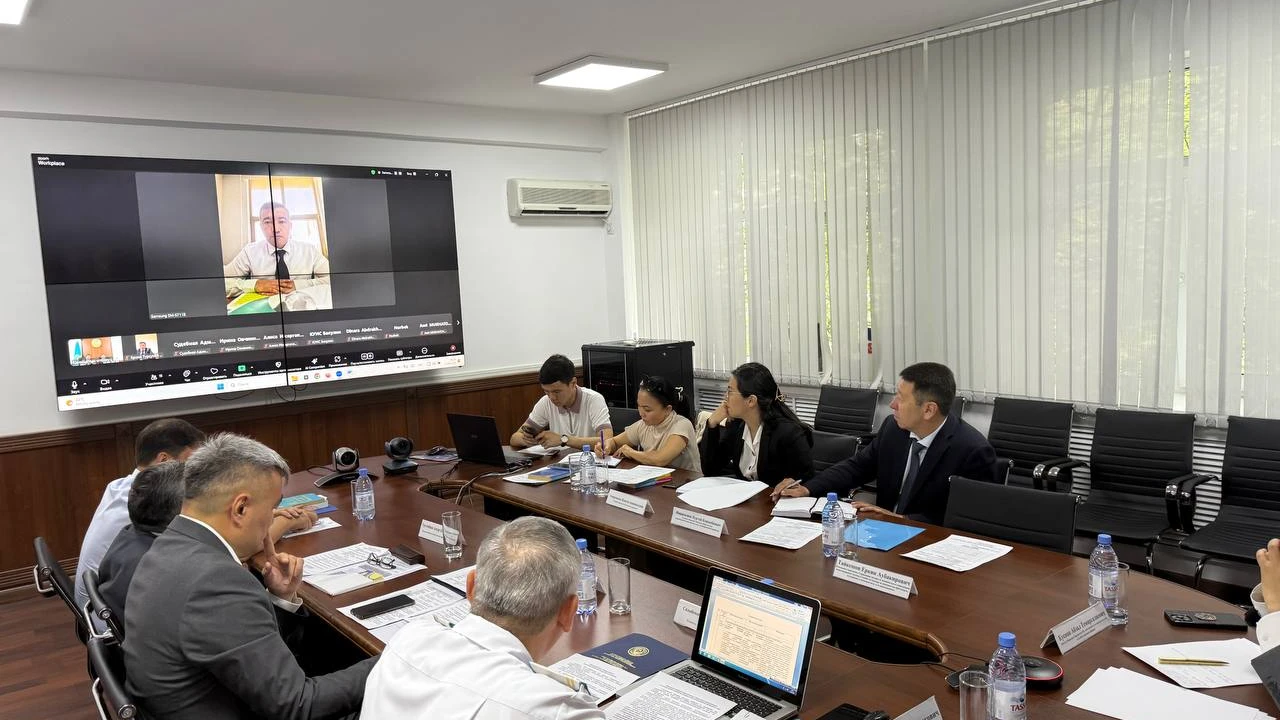
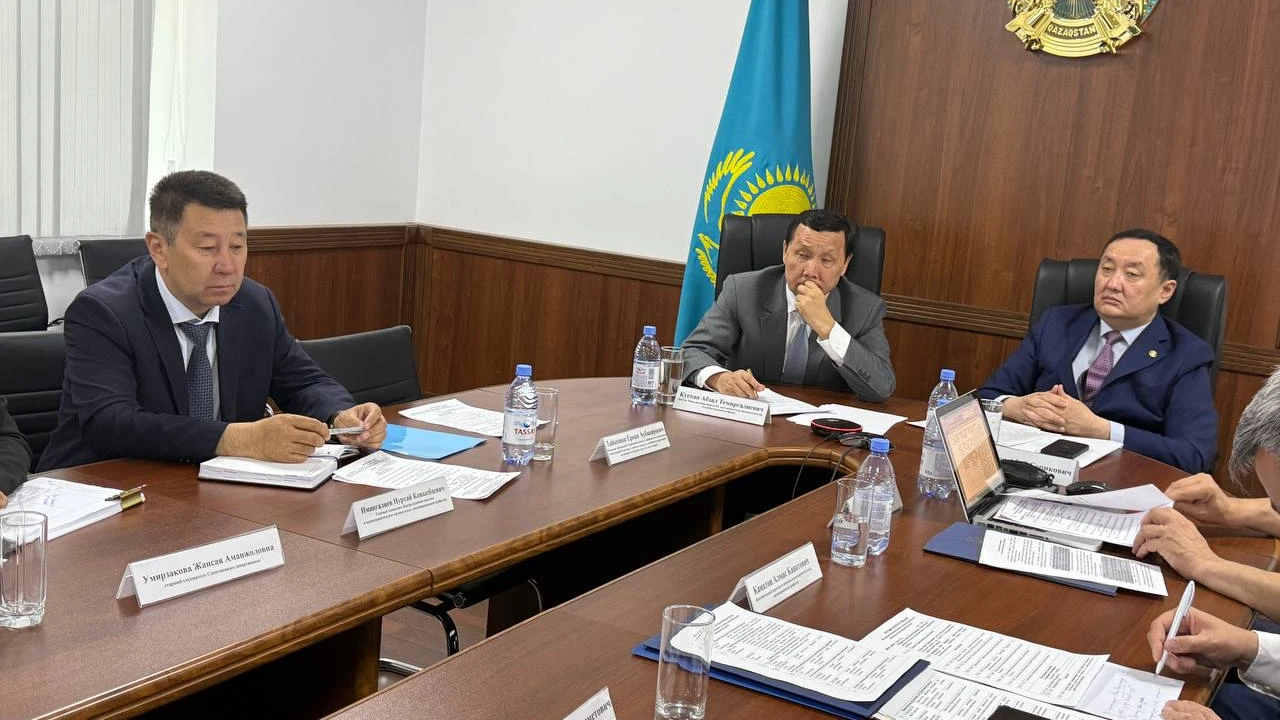
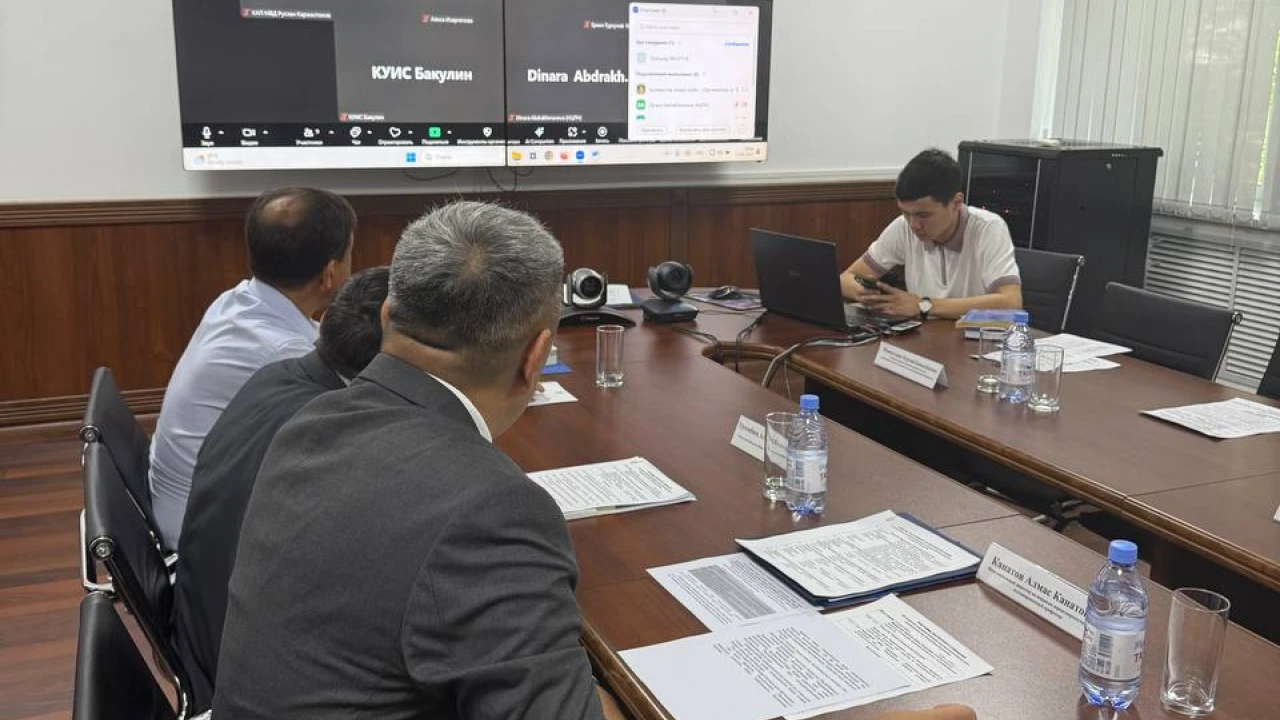
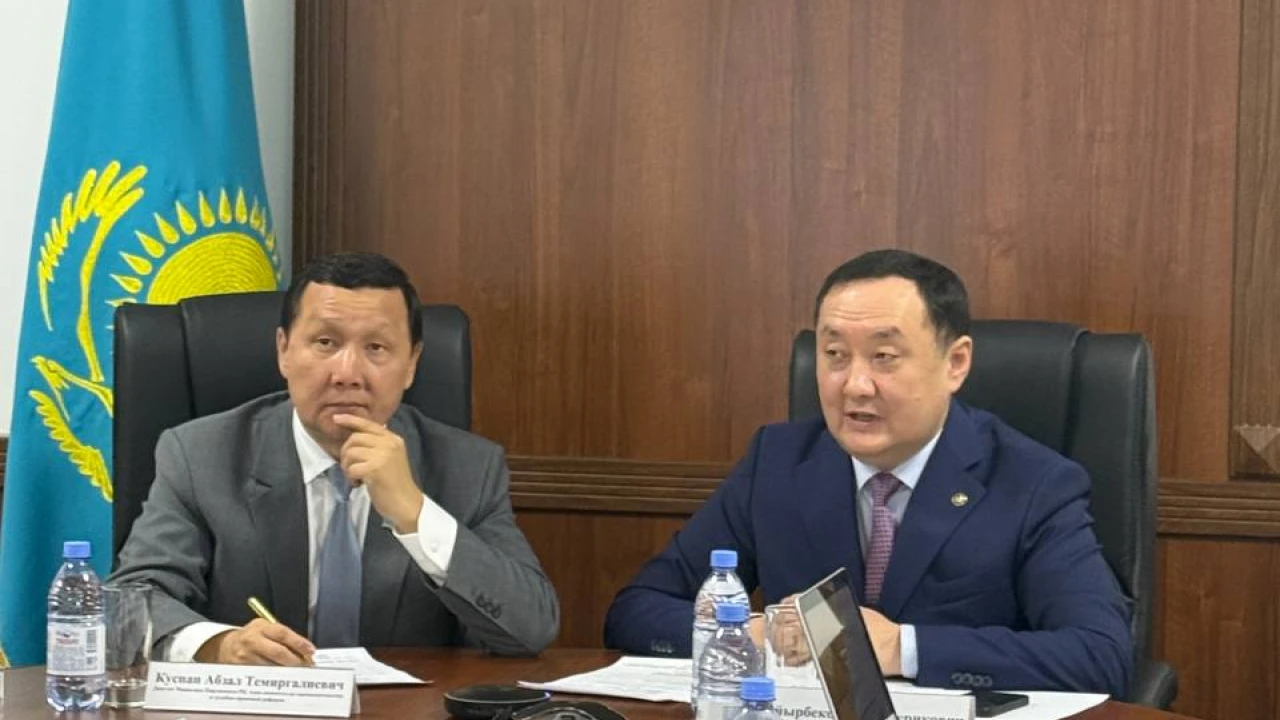
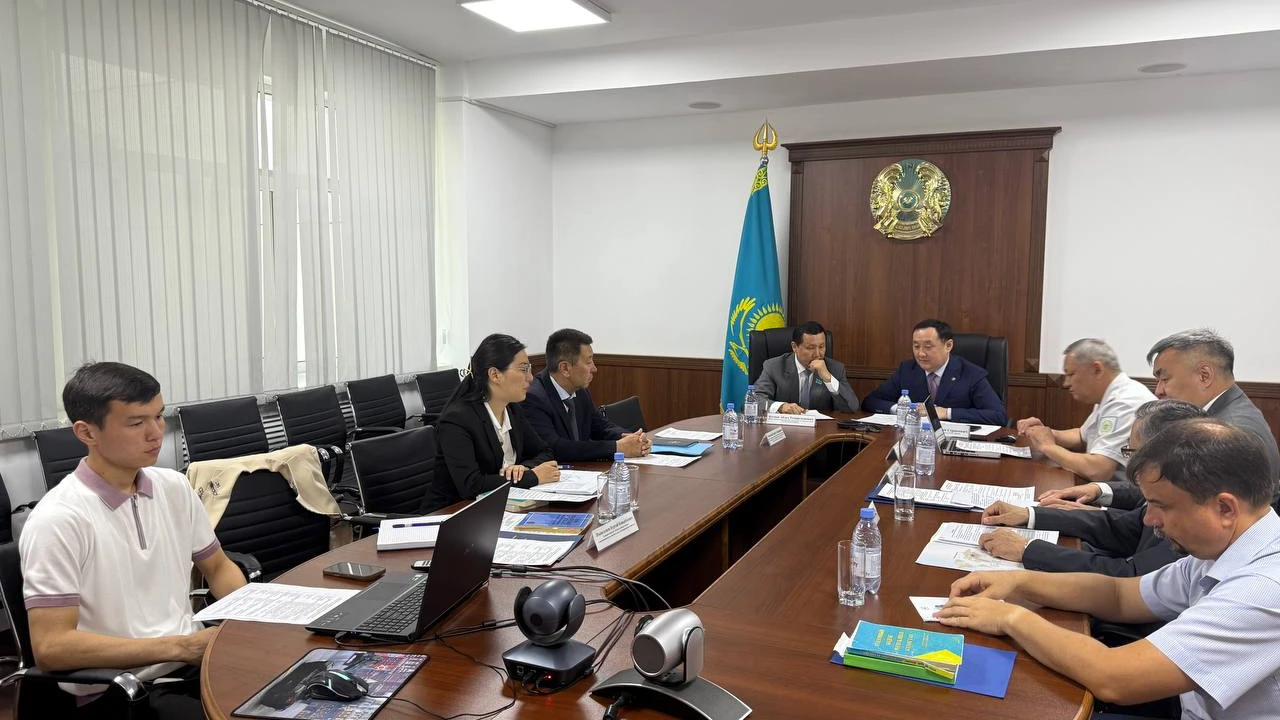
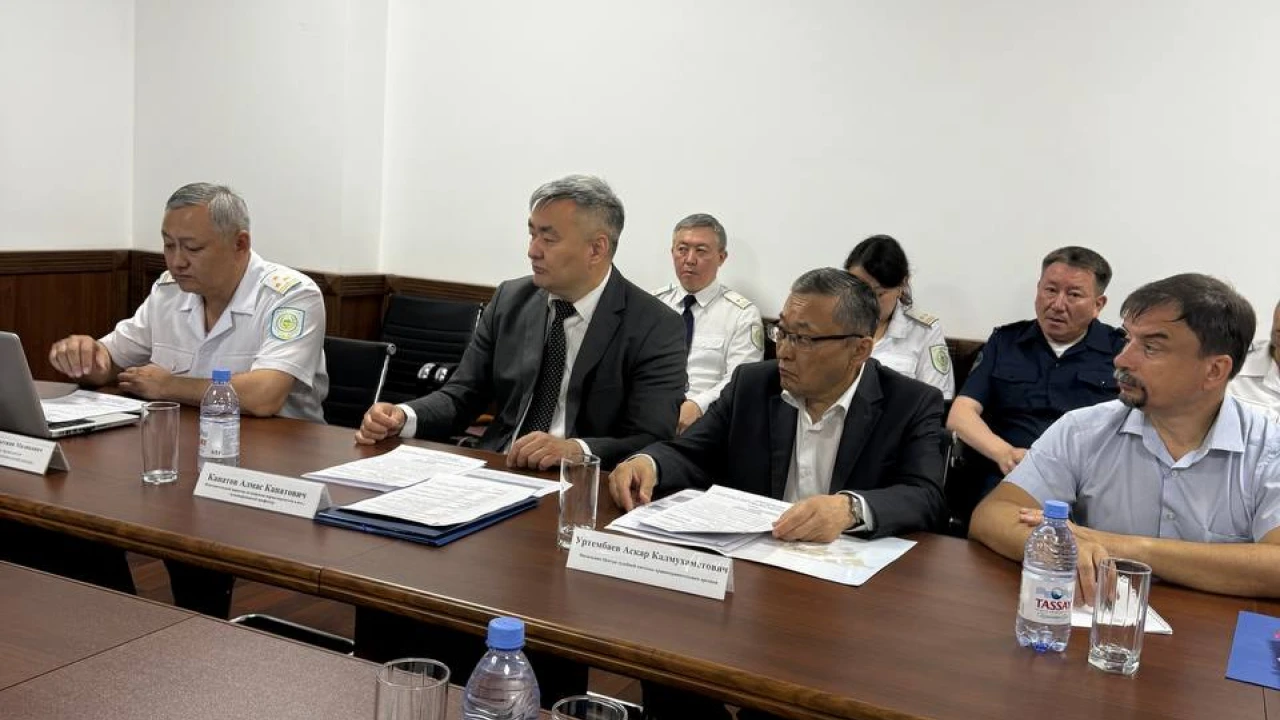
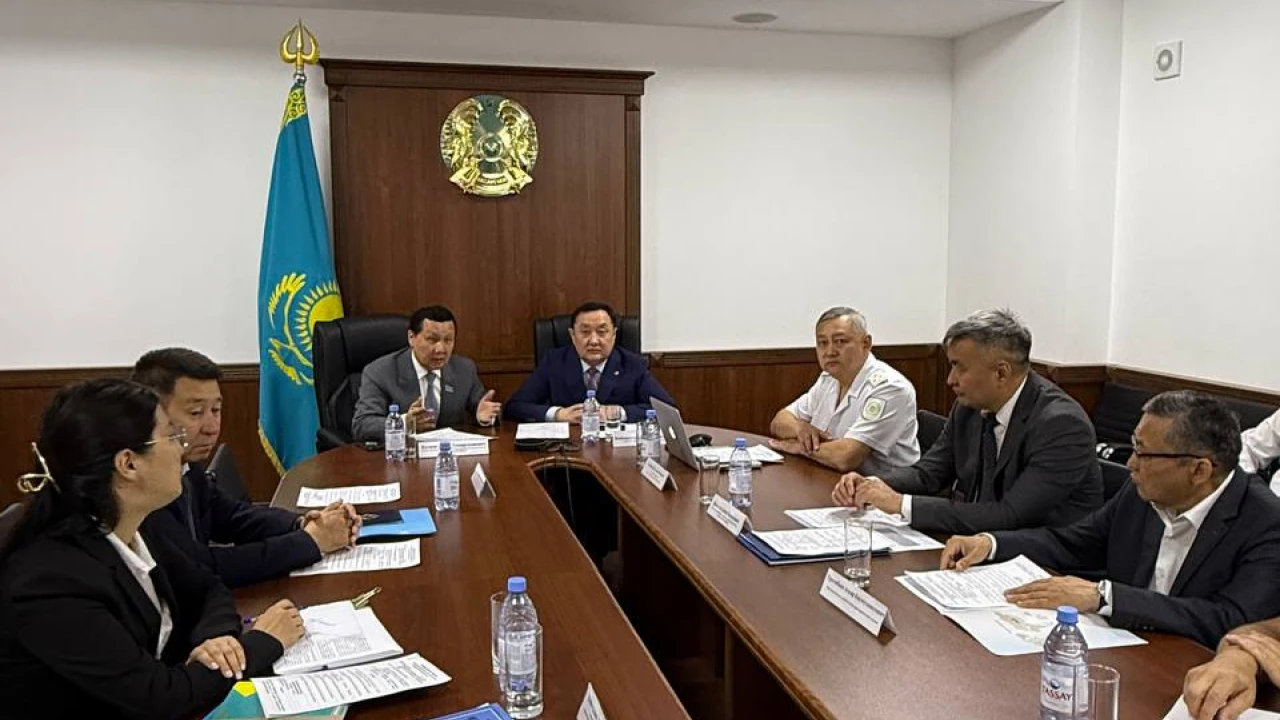
On June 13, 2025, the Committee of the Penal Enforcement System of the Ministry of Internal Affairs of the Republic of Kazakhstan (PES MIA RK) hosted a hybrid-format expert meeting on improving penal legislation. The initiative for the event was put forward by Member of the Mazhilis of the Parliament of the Republic of Kazakhstan, Abzal Temirgaliuly Kuspan.
The expert platform was attended by Member of the Mazhilis and member of the Committee on Legislation and Judicial-Legal Reform Abzal Kuspan, Deputy Minister of Internal Affairs and Chairman of the Penal Enforcement Committee Abai Serikovich Kaïyrbekov, Executive Director for Lawmaking at the Institute of Parliamentarism under the Presidential Administration of the Republic of Kazakhstan Almas Kanatovich Kanatov, Head of the Center for Judicial System and Law Enforcement Askar Kalmukhametovich Urtembayev, Lead Expert of the Center Nurtai Konysbayevich Imangaliev, as well as representatives of the General Prosecutor’s Office, Judicial Administration, Anti-Corruption Agency, National Security Committee, Ministry of Justice, and other relevant government bodies.
The meeting focused on key issues concerning the Administrative Procedure and Process Code (APPC), the Criminal Procedure Code, and the Criminal Code of the Republic of Kazakhstan. According to participants, current expenditures for one convicted individual amount to approximately 100,000 KZT per day. As a cost-effective alternative, the use of electronic bracelets was proposed, with a rental cost of 17,000 KZT, suggesting that the convicted individual should bear this expense.
Abzal Kuspan highlighted the outdated infrastructure of penal institutions, noting that “75 percent of the facilities do not meet modern standards.” Participants also proposed excluding penal enforcement activities from the scope of the APPC, and removing corrective labor as a form of punishment. Given the nature of the offense and the damage caused to state interests, deliberate damage to tracking devices was suggested to serve as a basis for revoking a suspended sentence.
The Ministry of Internal Affairs, together with other interested government bodies (including the Ministry of Finance, Judicial Administration, General Prosecutor’s Office, Ministry of Justice, Ministry of National Economy, Ministry of Defense, and the Ministry for Emergency Situations), is conducting a comprehensive review of the development of arrest as a form of criminal punishment.
During the discussions, it was also noted that penal facilities in nine regions of the country are significantly overcrowded — with occupancy rates ranging from 104% to 265%. In six regions, institutions are approaching full capacity (90% to 97%), and in Akmola Region, there is no dedicated penal facility at all.
The Institute of Parliamentarism expressed its gratitude to all participants for their active involvement and readiness for continued cooperation with governmental and civil society institutions on the reform and improvement of the country’s penal enforcement system.



